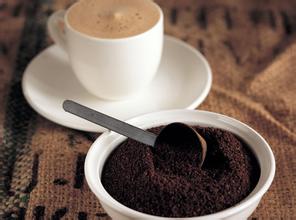Boutique coffee Rwanda coffee origin Rwanda coffee practice
Rwandans have been growing coffee since colonial times, but until 1999, its products were still classified as below Class C and in the global market.
No one cares about it. The reason for the poor quality is that farmers do not have a fixed procedure for washing coffee beans and do not process coffee fruits according to specifications in time. Buyers buy coffee beans at $0.33 per kilogram, and farmers maintain food and clothing on meagre profits earned at low prices, but they are still in a state of poverty.
In 1999, 220 coffee growers formed guilds in the Malaba area (formerly part of Butare province) to address the disease. Among the guild members, many farmers were separated from their loved ones by the 1994 mass massacre, while some husbands were jailed or were taken to the traditional Gacaca Court (gacaca) to face trial on charges of participating in the massacre. They named the guild "Abau Zam Gambi" (Abahuzamugambi), which means "people who work together to achieve their goals" in Rwandan. Farmers hope that by setting up this association, they will be able to work directly with Geely's exporters instead of peeling layers of skin through intermediary transportation companies, so as to increase profits. Farmers distribute their profits and spend them on tools, fertilizers and seeds to increase production.
In 2000, the Mayor of Malaba requested development assistance from the National University of Rwanda (UNR), which is located near the city of Butare, and the following year, the National University of Rwanda assisted in the establishment of the Joint strengthening Rwanda Agricultural Partnership (PEARL). The PEARL project is also supported by several organizations: the United States Agency for International Development (USAID), Michigan State University, Texas A & M University, and many other Rwandan organizations, including the National University of Rwanda, the National Agricultural Laboratory (ISAR) and the Gejali Institute of Technology Management (KIST). In February 2001, PEARL began working with Abauzam Gamby to improve the quality of coffee to meet the standards of the professional coffee market in the United States, and then sell the coffee to the United States.
The first problem for Malaba coffee farmers is to set up a cleaning station. The coffee fruit must be transported to the cleaning station to wash the sugar under the skin of the coffee bean within 12 hours after picking, otherwise the flavor of the coffee will be greatly damaged. In July 2001, with funding from UNR, the Ministry of Culture and Industry of Rwanda (Office des Cultures Industrielles du Rwanda,OCIR-Caf é), ACDI/VOCA and ISAR, they set up the first cleaning station near the main road in the Cyarumbo district. However, the cleaning station was not opened until the harvest time, so only 200 kilograms (441 pounds) of the harvest were washed that year. However, the result was surprisingly good. In 2002, the cleaning station was upgraded to supply more coffee processing. ACDI/VOCA is responsible for funding the construction of pipelines to bring in Mount Huye mineral water and help improve the efficiency of cleaning stations. The pipeline was opened in March 2002.
During the 2002 harvest season, Rwanda introduced a new certification system to ensure that coffee beans shipped to cleaning stations are of proper quality. About half of Abauzam Gambi's members are certified, and cooperatives are able to find buyers in professional markets in Europe and North America.
Be recognized by the world
Malaba coffee beans are manually selected and classified according to their quality.
Malaba coffee beans are manually selected and classified according to their quality.
PEARL brought coffee experts to Rwanda to maintain contact with the seller, the Public Coffee Company (Community Coffee) in Louisy, USA, and sent samples to Louisiana. In June 2002, representatives of public coffee visited Malaba. At that time, the current President of Rwanda, Paul Kagame, declared the importance of the plan on behalf of the government. Public Coffee bought 18000 kilograms (40000 pounds) of Malaba beans at $3 per kilogram above the average market price. Coffee beans are shipped to Louisiana, where they are roasted locally and used in the company's delicate coffee. It is also the first direct contract between an American roaster and an African coffee cooperative.
Comic relief, a British charity, has also taken an interest in Malaba. They pledged to use some of the 55 million pounds earned from their 2001 Red nose Day (Red Nose Day) in Britain and Africa to donate to the Genocide Widows Association (Association des Veuves du Genocide,AVEGA), an association set up for the widows of the 1994 Rwanda massacre. The charity found that many Malaba farmers are also members of AVEGA, so they can provide funds and assistance to Malaba farmers through AVEGA. They then contacted the British coffee roasting company (Union Coffee Roasters) and their representatives visited Malaba together with senior officials of the International Fair Trade labelling Organization (FLO) in 2002. After a group of people visited various places, they awarded proof that Malaba coffee had also become a commodity for the first time for Rwandan cooperatives to gain fair trade status. UCR described Malaba Coffee as "flashing citrus flavors with rich, sweet chocolate notes" and bought all the unsold products during the 2002 harvest.
In early 2003, UCR distributed Malaba coffee through the Sainsbury's supermarket in Sainsbury and sold it in its 350 stores until Red nose Day that year. In 2003, Abauzam Gump made a net profit of US $35000. Of this, 70 per cent is allocated to farmers at a price of US $0.75 per kilogram, more than three times the profits earned by other Rwandan coffee growers and enough to cover previously unaffordable health care and education services. The remaining 30% is invested in cooperatives and used to buy calcium carbonate, an agricultural lime that can reduce the increase in acidity of the soil due to the loss of minerals by rainfall.

Important Notice :
前街咖啡 FrontStreet Coffee has moved to new addredd:
FrontStreet Coffee Address: 315,Donghua East Road,GuangZhou
Tel:020 38364473
- Prev

Fine coffee Rwanda Coffee characteristics introduction to Rwanda Coffee
Rwandans have been growing coffee since colonial times, but until 1999, its products were still classified as below Class C and were not popular in the global market. The reason for the poor quality is that farmers do not have a fixed procedure for washing coffee beans and do not process coffee fruits according to specifications in time. Buyers buy coffee beans at $0.33 per kilogram, and farmers keep warm by the meagre profits earned at low prices.
- Next

Fine coffee Rwanda coffee manor Rwanda coffee producing area
Rwandans have been growing coffee since colonial times, but until 1999, its products were still classified as below Class C and were not popular in the global market. The reason for the poor quality is that farmers do not have a fixed procedure for washing coffee beans and do not process coffee fruits according to specifications in time. Buyers buy coffee beans at $0.33 per kilogram, and farmers keep warm by the meagre profits earned at low prices.
Related
- Does Rose Summer choose Blue, Green or Red? Detailed explanation of Rose Summer Coffee plots and Classification in Panamanian Jade Manor
- What is the difference between the origin, producing area, processing plant, cooperative and manor of coffee beans?
- How fine does the espresso powder fit? how to grind the espresso?
- Sca coffee roasting degree color card coffee roasting degree 8 roasting color values what do you mean?
- The practice of lattes: how to make lattes at home
- Introduction to Indonesian Fine Coffee beans-- Java Coffee producing area of Indonesian Arabica Coffee
- How much will the flavor of light and medium roasted rose summer be expressed? What baking level is rose summer suitable for?
- Introduction to the characteristics of washing, sun-drying or wet-planing coffee commonly used in Mantenin, Indonesia
- Price characteristics of Arabica Coffee Bean Starbucks introduction to Manning Coffee Bean Taste producing area Variety Manor
- What is the authentic Yega flavor? What are the flavor characteristics of the really excellent Yejasuffi coffee beans?

